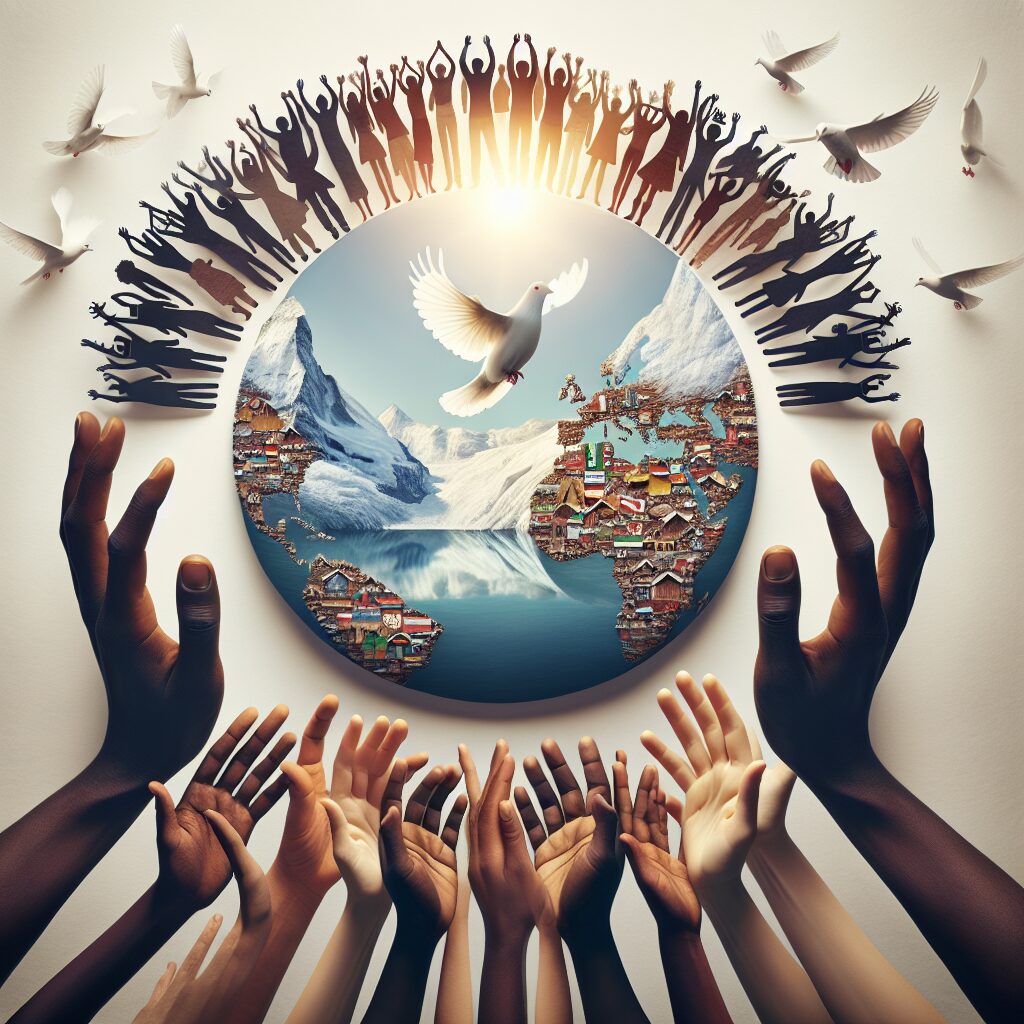Imagine waking up to the startling noise of a glacier cracking apart, a sound chilling enough to transcend the general tranquility of a picturesque Swiss village nestled in the Alps. Such was the reality this Thursday when a significant section of a glacier catastrophically detached and slid down the mountainside, burying homes and dreams under a cold blanket of ice and debris.
The serene beauty of these snow-capped peaks, often a paradise for skiers and hikers, momentarily morphed into a nightmarish scene, reflecting a harsher consequence of our warming planet. This event underscores the urgent whispers of nature that we can no longer afford to ignore. The local emergency services sprang into action, a testament to their readiness, yet the uncertainty surrounding casualties and the full extent of the damage paints a somber picture. You can view some of this heart-wrenching aerial footage through Global News’ coverage of the event.
As rescue operations unfold in the heart of the Alps, the focus isn't just on recovery but also on future prevention. Local geologists are intensely assessing the risk of further collapses, not only aiming to protect the neighboring communities but also to understand the deeper implications of such events. This disaster acts as a severe reminder of the fragile interplay between natural beauty and the forces that threaten its very existence.
Experts have long warned about the instability of glaciers in the region, attributed largely to climate change. The Alps, like many cold regions worldwide, have been experiencing noticeable shifts in glacier volume and structure, leading to increased unpredictability. As these icy giants dwindle and destabilize, they pose a direct threat not only to the immediate environment but also to the global sea levels.
Taking actionable steps towards sustainability might help mitigate such disasters in the future. Reducing carbon footprints, supporting clean energy sources, and enhancing global awareness and policies aimed at protecting our planet are more crucial now than ever.
As we reflect on this unsettling event, it’s vital to remember the power of community and resilience in the face of adversity. Such challenges remind us of our duty to the Earth and to each other, urging us to act before the beauty of the natural world is irreversibly altered.
While the full ramifications of the glacier collapse are yet unfolding, the incident offers a poignant opportunity for reflection and action. What steps can we, as a global community, take to prevent such extreme natural events? How do we balance the allure of living in nature with the growing risks posed by an unsettled environment?
For more insights on environmental changes and their implications, don't miss reading about how climate change is affecting weather patterns globally.
We also have an extensive discussion on the importance of sustainable living to prevent environmental disasters.
What measures are local authorities taking to assist affected communities? How can the global community contribute to these efforts? These are some of the pressing questions we now face.
FAQs:
Q: What exactly is a glacier collapse?
A: A glacier collapse occurs when a large section of glacier ice breaks away and falls, often triggered by melting and destabilizing due to warming temperatures.
Q: How does climate change affect glaciers?
A: Climate change raises global temperatures, which accelerates glacier melting, reduces ice mass, and destabilizes their structure, increasing the likelihood of collapses and avalanches.
Q: What can individuals do to help mitigate climate change?
A: Individuals can reduce their carbon footprint by using renewable energy, reducing waste, supporting sustainable practices, and advocating for environmental policies.
Q: Are there safety measures for living in glacier-adjacent regions?
A: Yes, building codes, zoning laws, and continuous geological monitoring help improve safety in regions prone to glacier-related disasters.
#ClimateAction #AlpineSafety #EnvironmentalAwareness #SustainableLiving #GlobalWarming
